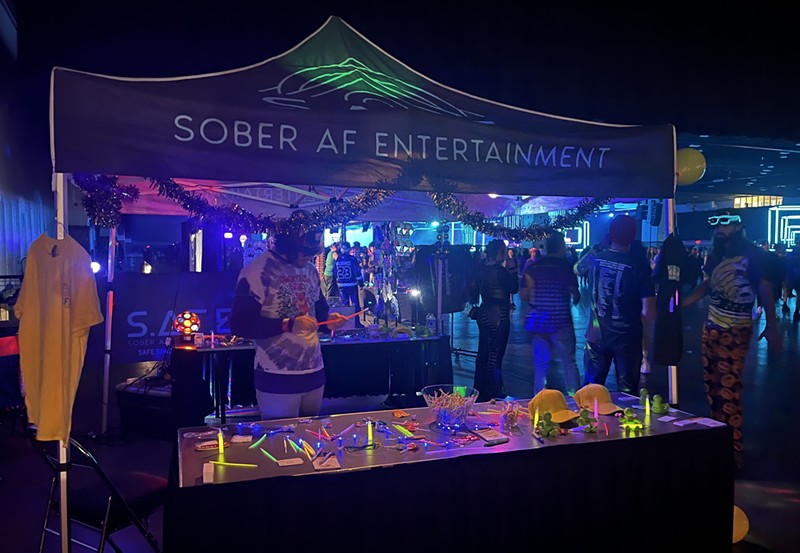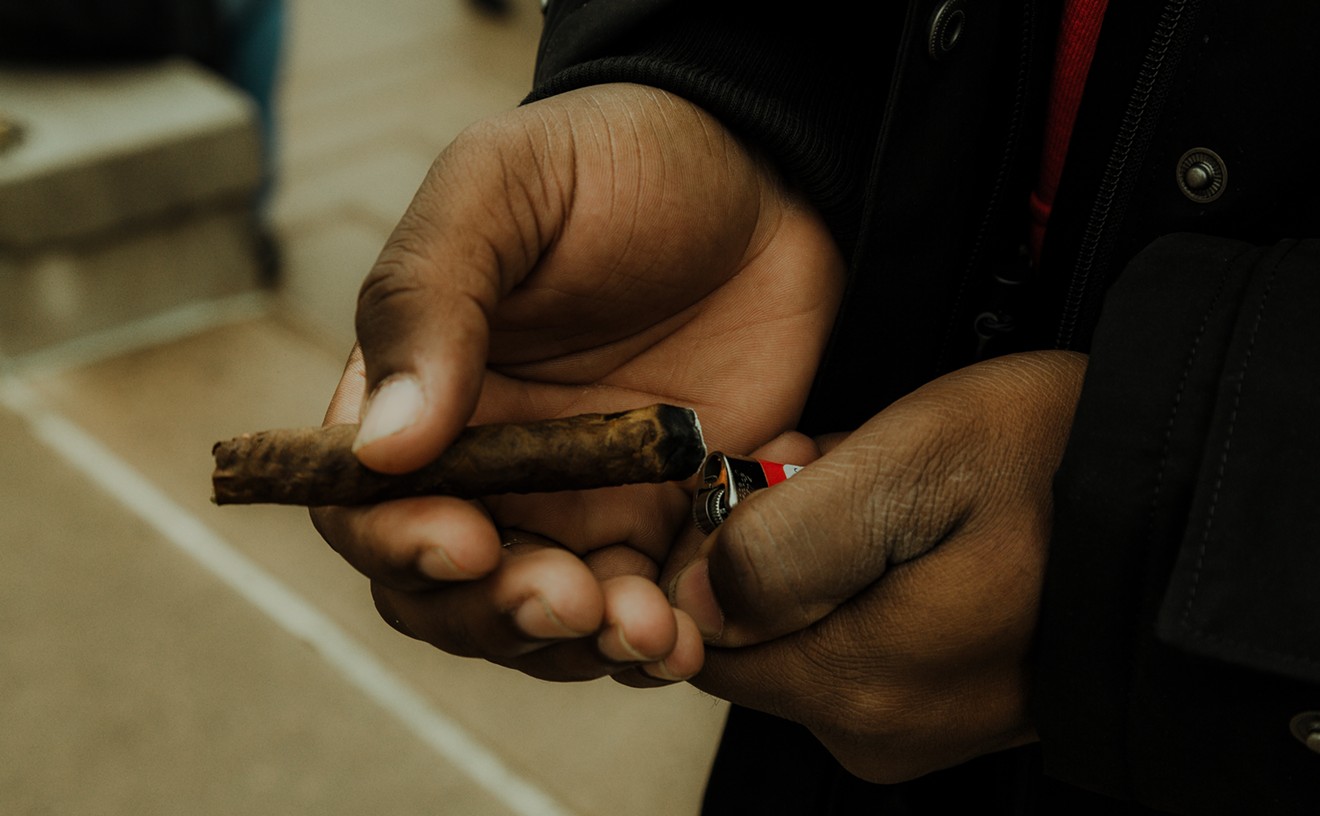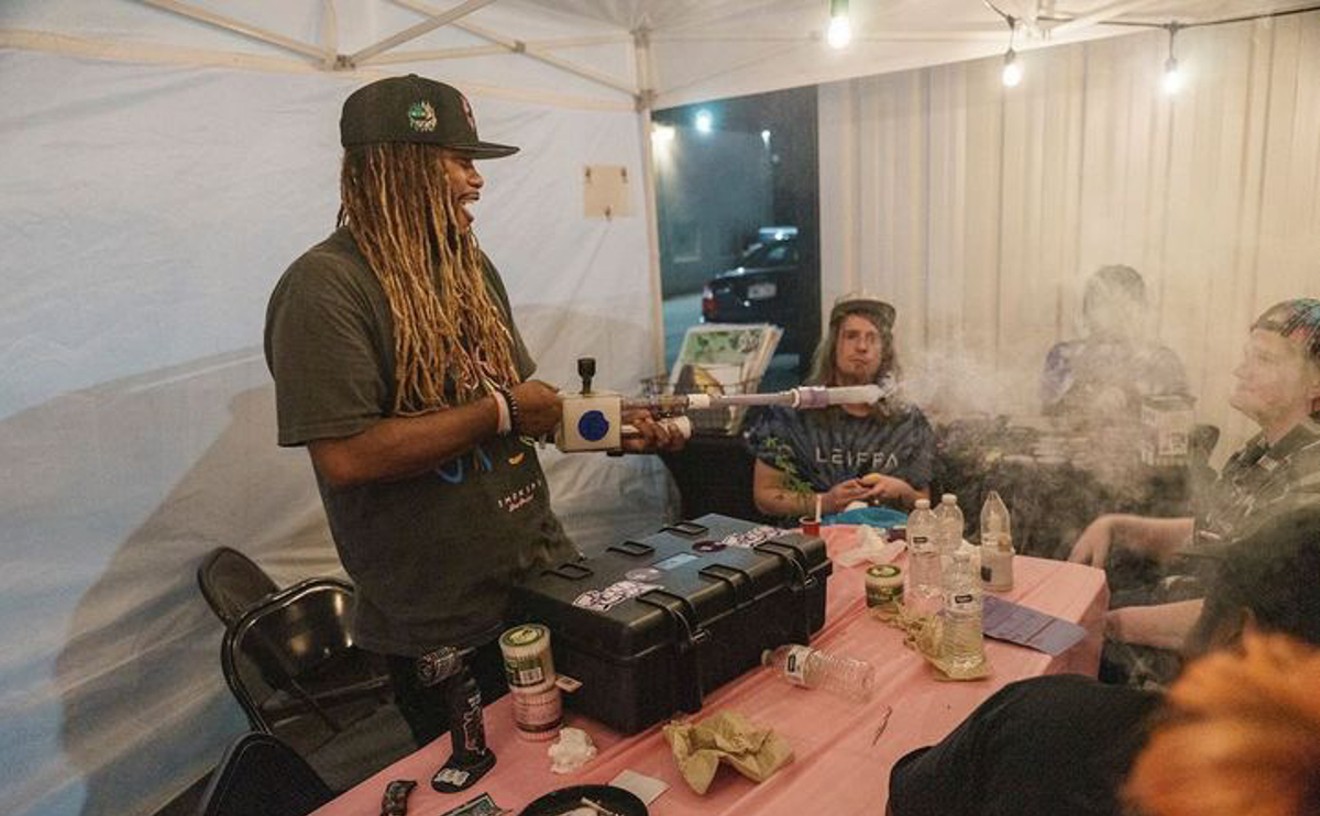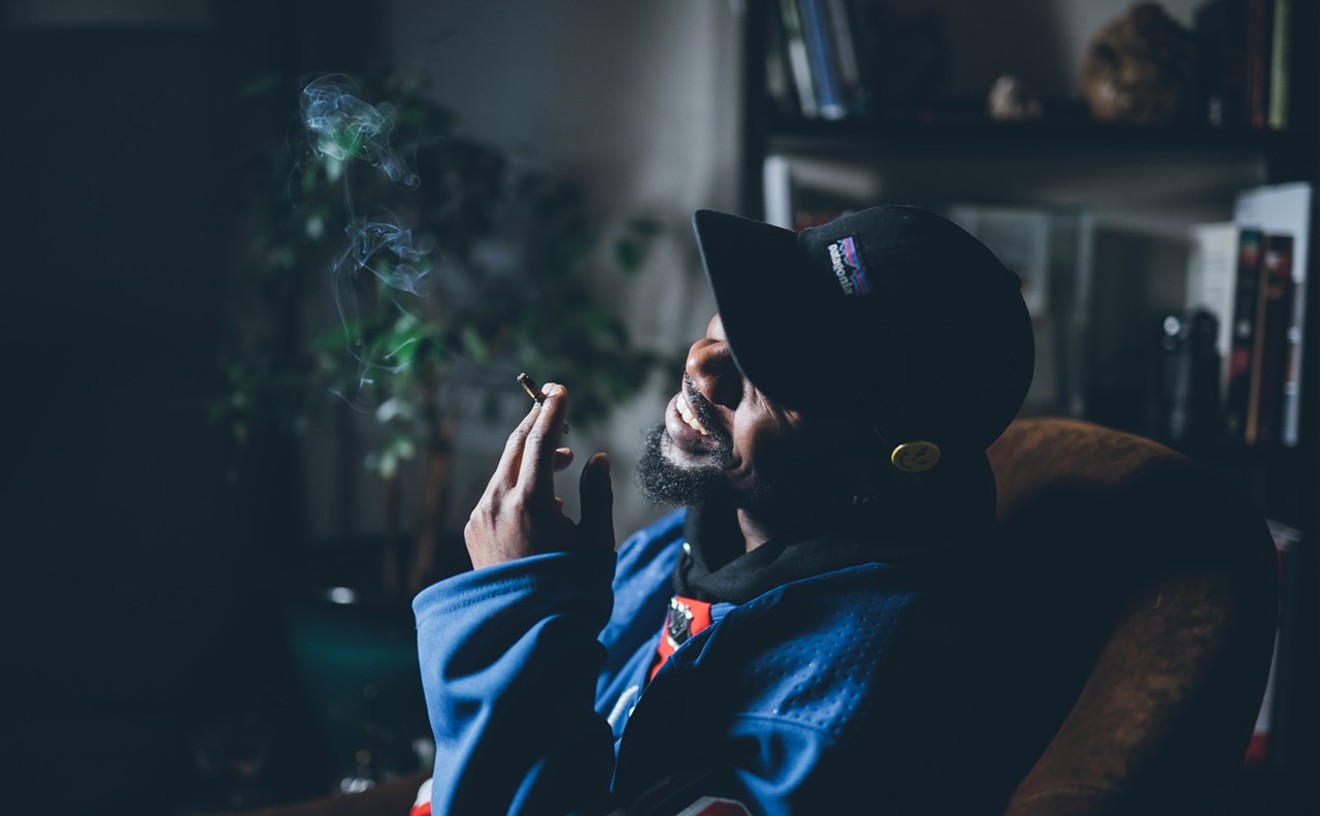A bill introduced at the Colorado Legislature would require official sober seating sections at large entertainment venues like Coors Field and Red Rocks Amphitheatre.
State Senator Kevin Priola, the sponsor of Senate Bill 23-171, wants to see substance-free sections — where alcohol, tobacco, vaping and other substances would be explicitly prohibited — at entertainment venues that seat 7,000 or more people, including college stadiums. If his proposal passes, those facilities would have to reserve at least 4 percent of their seats for alcohol- and substance-free seating, or risk losing their liquor licenses.
"I've paid a lot of attention to the movement toward mocktails at bars. It was my hope to standardize the process across the state and normalize sobriety at some spaces," Priola says. "We don't want to be acrimonious in this proposal. We want something that works for the sports teams, the venues and the entertainment providers, but we also want something that works for families and people who are substance-free."
Pointing to a bump in sober lifestyles among young people and alcohol-free months such as Dry January and Sober October, Priola notes that there should be enough people to fill the seats in such sections.
The bill, introduced February 27, would impact thirteen venues across Colorado: Ball Arena, Canvas Stadium, Coors Field, the Denver Coliseum, Dick's Sporting Goods Park, Empower Field at Mile High, Fiddler's Green Amphitheatre, Folsom Field, Falcon Stadium, Levitt Pavilion, Red Rocks Amphitheatre, Southwest Motors Event Center and Broadmoor World Arena.
"These venues are publicly funded, too, so I think they should cater to all lifestyles of Colorado," Priola adds.
If approved, the bill would be the first piece of legislation in the country to require substance-free seating at entertainment venues, he says.
Sober organizations are already creating their own sections at music festivals and sporting events. Sober AF Entertainment founder Duke Rumely started his Colorado-based organization in 2018 after his children were stranded at a Red Rocks concert because the drivers of their rides were alternately intoxicated on weed brownies and ecstasy. He soon began crafting bulk-ticket deals with entertainment and sporting venues, creating entire substance-free sections. Since its start, Sober AF has attended 161 events across 22 states, Rumely says; it has ongoing relationships with the Colorado Avalanche, Colorado Rockies and Denver Nuggets, as well as annual music festivals Decadence and Global Dance Festival.
"Baseball represents a beer and a hotdog, so it's a tough sell to change that to a Coke and a hot dog. I can see how this looks controversial, but we are really trying to make a difference for this generation of kids every year who are lost to addiction and overdose," says Rumely, who supports the bill. "I've got friends who won't go a Denver Broncos game because of whiskey-drunk Baltimore Ravens fans. I've personally been to a Broncos game where someone threw up in the section, and it ruined it for everyone."
Around half of the teams in the NFL have set up substance-free seating sections, according to Rumely, and venues around the country have adopted sober seating for certain events. At Coors Field, for example, lower section 342 is a designated family section, with no alcohol allowed there.
Under the Colorado proposal, the 4 percent requirement can't be met with just seats in the nosebleeds, with language calling for the sober seats to be dispersed throughout the venue so that multiple viewpoints are available.
Priola admits that he's not entirely sure how venues would distribute sober sections throughout a facility while still ensuring that the seating is substance-free, or even what the state would consider "substance-free." It could be a row, multiple rows, an entire section or something else.
"We left that flexibility to venues and teams. The only real caveat is that they can't put all the seats in the upper corner of the venue," Priola explains. "Empower Field has over 76,000 seats, so that would only be just over 3,000 seats [there]. And there's nothing that precludes them from doing more, so if they wanted to round out a section by going over [4 percent], they could."
The sections would be marked with signage, and venue staffers would be responsible for enforcing the rules. Visitors caught with alcohol or other substances would be disciplined by the venue, with no criminal penalty attached.
Priola's proposal would specifically ban tobacco and marijuana from such sections, too, even though both products are prohibited from virtually all seating areas at Colorado venues. "They are illegal," he says, "but my experience is that the public doesn't always realize that. I've seen things smoked and vaped in public facilities that aren't legal. In my opinion, this is just another layer."
"I don't believe venues are going to lose any revenue, because I think 4 percent or more of people are already there not drinking, but it will require some extra manpower," Rumely says. "We're trying to help the venues be sober-friendly, not judicial or punitive. I would imagine that the pushback will be from the alcohol companies, the venues who have to hire a few more workers, and those managing the resale of those tickets, but I think it's very fixable with time."
The reselling of tickets is just one of the challenges; the issue of reassigning season ticket holders to sober sections is another issue that bill supporters expect to face.
The Denver Broncos and Anschutz Entertainment Group declined to comment on the bill. The Colorado Rapids, Colorado Rockies and Kroenke Sports & Entertainment, which owns the Colorado Avalanche, Denver Nuggets, Ball Arena and Dick's Sporting Goods Park, did not respond to Westword requests for comment.
Priola says that his office has contacted Colorado's sports and entertainment industry players, too, but hasn't gotten much of a response. "We've reached out to them and had a stakeholder call weeks ago," he notes. "The striking thing is we've gotten little to no feedback, because we wanted to adjust the proposal before it was introduced to try to work with them."
The first hearing before the Senate Finance Committee has not yet been scheduled. If the proposal makes it all the way to the governor's desk and is signed into law, it would take effect in 2026.
[
{
"name": "Air - MediumRectangle - Inline Content - Mobile Display Size",
"component": "12017618",
"insertPoint": "2",
"requiredCountToDisplay": "2",
"watchElement": ".fdn-content-body",
"astAdList": [
{
"adType": "rectangle",
"displayTargets": "mobile"
}
]
},{
"name": "Editor Picks",
"component": "17242653",
"insertPoint": "4",
"requiredCountToDisplay": "1",
"watchElement": ".fdn-content-body",
"astAdList": [
{
"adType": "rectangle",
"displayTargets": "desktop|tablet"
},{
"adType": "rectangle",
"displayTargets": "desktop|tablet|mobile"
}
]
},{
"name": "Inline Links",
"component": "18838239",
"insertPoint": "8th",
"startingPoint": 8,
"requiredCountToDisplay": "7",
"maxInsertions": 25
},{
"name": "Air - MediumRectangle - Combo - Inline Content",
"component": "17261320",
"insertPoint": "8th",
"startingPoint": 8,
"requiredCountToDisplay": "7",
"maxInsertions": 25,
"watchElement": ".fdn-content-body",
"astAdList": [
{
"adType": "rectangle",
"displayTargets": "desktop|tablet"
},{
"adType": "rectangle",
"displayTargets": "desktop|tablet|mobile"
}
]
},{
"name": "Inline Links",
"component": "18838239",
"insertPoint": "8th",
"startingPoint": 12,
"requiredCountToDisplay": "11",
"maxInsertions": 25
},{
"name": "Air - Leaderboard Tower - Combo - Inline Content",
"component": "17261321",
"insertPoint": "8th",
"startingPoint": 12,
"requiredCountToDisplay": "11",
"maxInsertions": 25,
"watchElement": ".fdn-content-body",
"astAdList": [
{
"adType": "leaderboardInlineContent",
"displayTargets": "desktop|tablet"
},{
"adType": "tower",
"displayTargets": "mobile"
}
]
}
]












